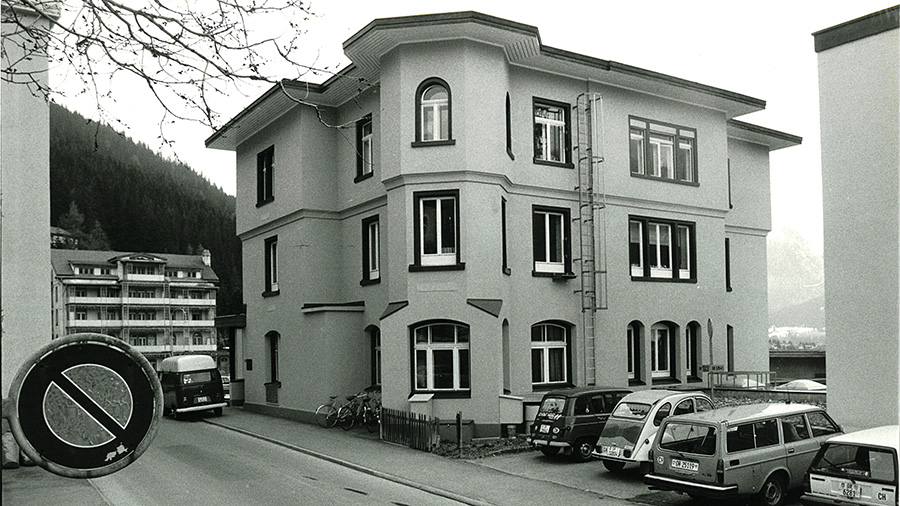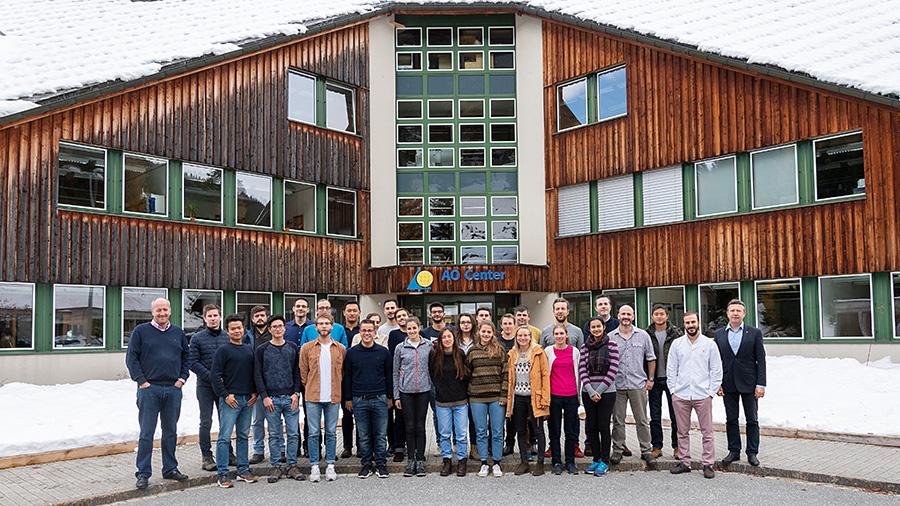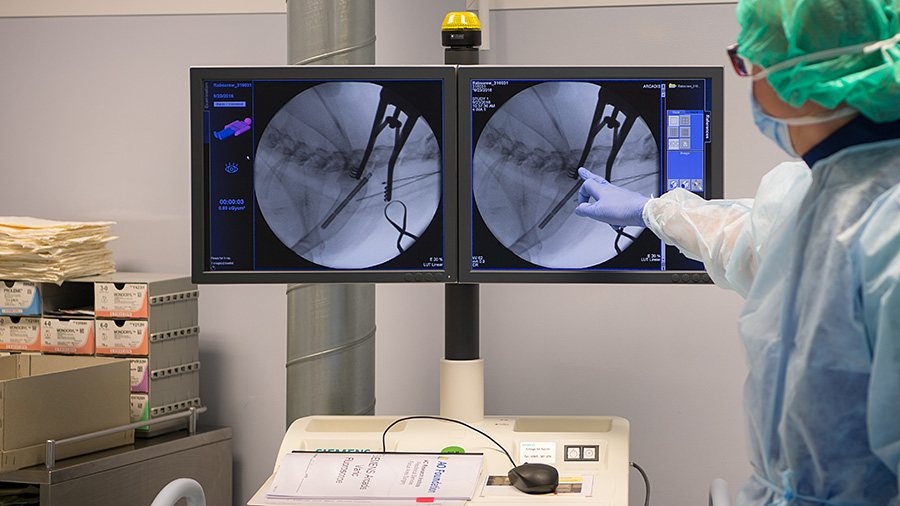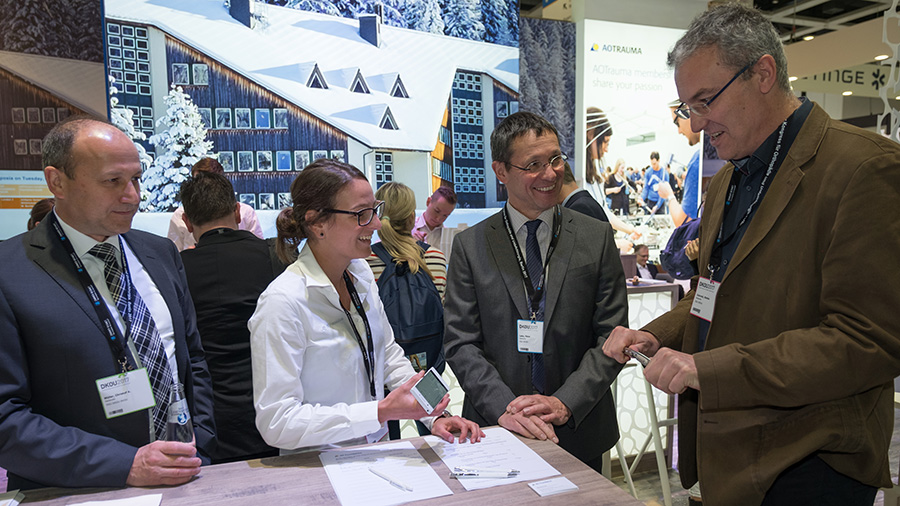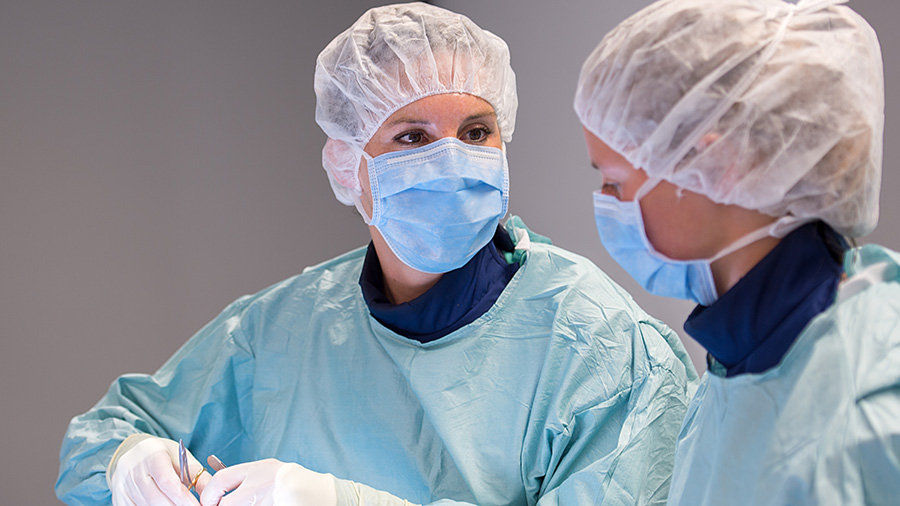Outstanding research, consistent excellence
AO Research Institute Davos celebrates 60 years of scientific advances
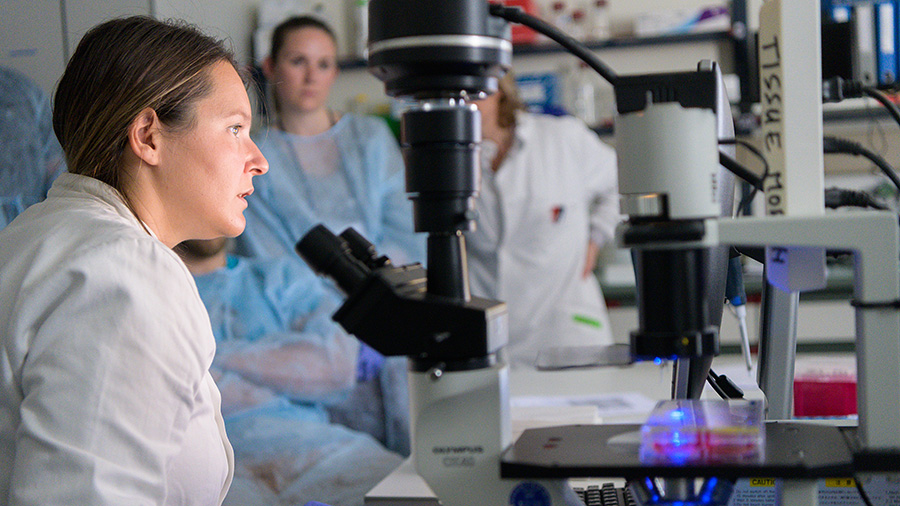
AO Research Institute Davos (ARI) celebrates the 60th anniversary of its founding. The AO is marking this by looking back at some of its most significant achievements over this time, and also looking ahead to what the different teams at AO Research Institute Davos are working on today.
Founded on June 22, 1959, the "Labor für experimentelle Chirurgie Davos" (LECD - Laboratory for Experimental Surgery Davos) was established. The AO's founders set it up as a non-profit institution. Under Martin Allgöwer's initial direction, it carried out research into polytrauma, shock, the pathophysiology of burns, and the histology of wound repair.
AO History, a picture from the Laboratory for Experimental Surgery in the Villa Fontana, Davos
Today, AO Research Institute Davos is recognized as a research-leader in Switzerland, Europe, and the world. AO Research Institute Davos's purpose is advancing patient care through innovative orthopedic research and development. Its goals are to contribute high-quality applied preclinical research and development focused on clinical applications and solutions, to investigate and improve the performance of surgical procedures, devices, and substances, and to build a close relationship with the AO medical community, academic societies, and universities.
It was AO Research Institute Davos Director Stephan Perren who gave AO Research Institute Davos its focus on bone biomechanics, in particular the interaction of mechanical and biological influences on bone formation, remodeling, and healing. From 1967 to 1995 AO Research Institute Davos made notable progress in its research into the biology of internal fracture fixation—developing new implants (eg, dynamic compression plates with limited bone contact, and locking plates) and tissue-friendly surgical procedures.
It was during this time that AO Research Institute Davos moved from its initial home, the LECD, to a custom-built facility known as the AO Center—the AO's headquarters.
Today, AO Research Institute Davos is recognized as a research-leader in Switzerland, Europe, and the world. AO Research Institute Davos's purpose is advancing patient care through innovative orthopedic research and development. Its goals are to contribute high-quality applied preclinical research and development focused on clinical applications and solutions, to investigate and improve the performance of surgical procedures, devices, and substances, and to build a close relationship with the AO medical community, academic societies, and universities.
It was AO Research Institute Davos Director Stephan Perren who gave AO Research Institute Davos its focus on bone biomechanics, in particular the interaction of mechanical and biological influences on bone formation, remodeling, and healing. From 1967 to 1995 AO Research Institute Davos made notable progress in its research into the biology of internal fracture fixation—developing new implants (eg, dynamic compression plates with limited bone contact, and locking plates) and tissue-friendly surgical procedures.
It was during this time that AO Research Institute Davos moved from its initial home, the LECD, to a custom-built facility known as the AO Center—the AO's headquarters.
AO Research Institute Davos, Fellows, 2018
The AO is rightly proud of the recent advances AO Research Institute Davos's Musculoskeletal Regeneration Program has made in cartilage and intervertebral disc research. This multidisciplinary group takes a holistic approach to tissue engineering in the repair of traumatic musculoskeletal injuries. The program brings together specialist knowledge in cell biology, polymer chemistry, and bioengineering to investigate cell/material interactions in vitro and in vivo. This research is classed into five focus areas: bone regeneration, intervertebral disc and cartilage regeneration, polymers and surfaces, stem cells, and tissue morphology. The multidisciplinary nature of the group is what makes it so unique, and all these areas interact to develop new trauma repair treatments.
The AO is rightly proud of the recent advances AO Research Institute Davos's Musculoskeletal Regeneration Program has made in cartilage and intervertebral disc research. This multidisciplinary group takes a holistic approach to tissue engineering in the repair of traumatic musculoskeletal injuries. The program brings together specialist knowledge in cell biology, polymer chemistry, and bioengineering to investigate cell/material interactions in vitro and in vivo. This research is classed into five focus areas: bone regeneration, intervertebral disc and cartilage regeneration, polymers and surfaces, stem cells, and tissue morphology. The multidisciplinary nature of the group is what makes it so unique, and all these areas interact to develop new trauma repair treatments.
Preclinical Services, AO Research Institute Davos
The preclinical research facility (PCF) is an essential feature in AO Research Institute Davos's longstanding, recognized, position as a research leader in this field. The first facility to house animals was built in 1975, with modern facilities developed in 2003, 2010, and work is currently ongoing on a new facility able to house specific pathogen free (SPF) sheep. When completed this would be the first facility of its kind in Europe.
The preclinical research facility (PCF) is an essential feature in AO Research Institute Davos's longstanding, recognized, position as a research leader in this field. The first facility to house animals was built in 1975, with modern facilities developed in 2003, 2010, and work is currently ongoing on a new facility able to house specific pathogen free (SPF) sheep. When completed this would be the first facility of its kind in Europe.
Manuela Ernst demonstrates the AO Fracture Monitor at DKOU
The ability to carry out the full spectrum of research – from online computer models, to in vitro laboratory work, to bioreactor work and in vivo research – remains a key feature of AO Research Institute Davos's unique contribution to high-quality research activity in these areas. Animal welfare has always been, and remains, central to the AO and to AO Research Institute Davos in its research. AO Research Institute Davos is proud to have received AALAC accreditation for the preclinical facility in 2013, and all its research is carried out to the highest standards: as attested to its ISO certification. AO Research Institute Davos received ISO 9001:2015 recertification in April 2018, and its concept development and biomechanical services received ISO recertification for ISO13485:2016 in April 2018. AO Research Institute Davos's preclinical facility and the musculoskeletal infection and tissue morphology groups received Good Laboratory Practice (GLP) certification in 2016, which is a very important accreditation to have when translating ideas to the clinic.
ARI's leading Biomedical Development Program develops innovative solutions to current issues in musculoskeletal treatment. It carries our development, research, and service work in the following areas: Biomedical Services, Concept Development, Research Services, and Prototype Workshop. They all work closely with other parts of the AO such as the clinical divisions and AO Technical Commission, and with clinical, scientific, and industrial partners. The focus throughout is ensuring the highest standards throughout the full cycle, from initial concept development, to prototype development, all through to clinical application.
The ability to carry out the full spectrum of research – from online computer models, to in vitro laboratory work, to bioreactor work and in vivo research – remains a key feature of AO Research Institute Davos's unique contribution to high-quality research activity in these areas. Animal welfare has always been, and remains, central to the AO and to AO Research Institute Davos in its research. AO Research Institute Davos is proud to have received AALAC accreditation for the preclinical facility in 2013, and all its research is carried out to the highest standards: as attested to its ISO certification. AO Research Institute Davos received ISO 9001:2015 recertification in April 2018, and its concept development and biomechanical services received ISO recertification for ISO13485:2016 in April 2018. AO Research Institute Davos's preclinical facility and the musculoskeletal infection and tissue morphology groups received Good Laboratory Practice (GLP) certification in 2016, which is a very important accreditation to have when translating ideas to the clinic.
ARI's leading Biomedical Development Program develops innovative solutions to current issues in musculoskeletal treatment. It carries our development, research, and service work in the following areas: Biomedical Services, Concept Development, Research Services, and Prototype Workshop. They all work closely with other parts of the AO such as the clinical divisions and AO Technical Commission, and with clinical, scientific, and industrial partners. The focus throughout is ensuring the highest standards throughout the full cycle, from initial concept development, to prototype development, all through to clinical application.
Preclinical Services, AO Research Institute Davos
As a leading scientific research institute focused on clinical problems, AO Research Institute Davos is always looking to change and adapt to the ever-shifting and increasingly complex health care environment. At the same time, however, its core values remain AO values – excellence in research combined with dedication to nurturing young talent and supporting able researchers at all stages of their careers. AO Research Institute Davos is proud to run fellowships that welcome outstanding researchers (both medical and PhD's) from all over the globe, and equally proud to partner with academic and research institutions worldwide. For AO Research Institute Davos, these past six decades have seen some tremendous advances in research and treatment in its field. The next six look to be just as exciting.
As a leading scientific research institute focused on clinical problems, AO Research Institute Davos is always looking to change and adapt to the ever-shifting and increasingly complex health care environment. At the same time, however, its core values remain AO values – excellence in research combined with dedication to nurturing young talent and supporting able researchers at all stages of their careers. AO Research Institute Davos is proud to run fellowships that welcome outstanding researchers (both medical and PhD's) from all over the globe, and equally proud to partner with academic and research institutions worldwide. For AO Research Institute Davos, these past six decades have seen some tremendous advances in research and treatment in its field. The next six look to be just as exciting.


